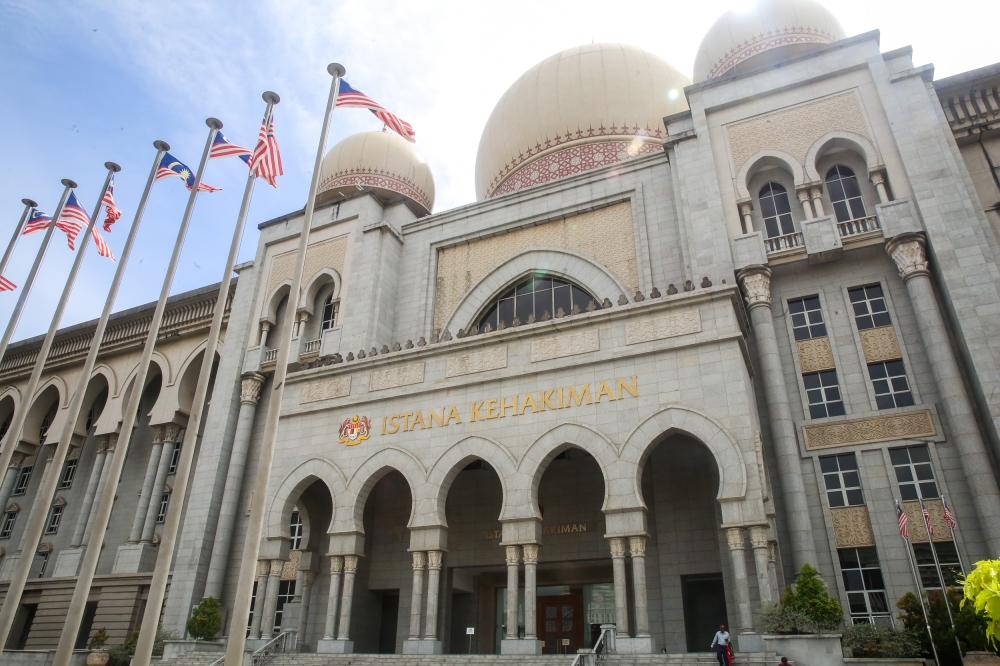KUALA LUMPUR, Feb 20 — The existence of vernacular schools in Malaysia — which have used Tamil and Chinese to teach students even before Merdeka and before the country’s national language was stated to be Malay — have become the target of renewed debate in recent years.
Several non-governmental organisations have failed in their constitutional challenge at both the High Court and at the Court of Appeal against vernacular schools (otherwise known as national-type schools).
Ahead of the Federal Court’s hearing today on two NGOs’ bid to pursue their challenge against the continued existence of vernacular schools, Malay Mail gives you a quick summary of the Court of Appeal’s November 23, 2023 unanimous decision to refresh your memory of what the case is about.
This is based on the full 41-page written judgment by Court of Appeal judge Datuk Azizul Azmi Adnan, which was agreed to by panel chair Datuk Supang Lian and fellow judge Datuk M. Gunalan. It was made available in December last year.
The Court of Appeal agreed with the High Court’s conclusions, and here’s what it decided on the two key issues:
Issue #1: Are the Education Act 1996’s Sections 2, 17 and 28 inconsistent with the Federal Constitution’s Article 152?
In short: Do the Education Act provisions — which enable vernacular schools to be established and maintained — go against the Federal Constitution? The Court of Appeal says no.
So, what are these Education Act provisions?
Section 17 states that the national language is to be the main medium of instruction in all educational institutions (except for national-type schools established under Section 28 or other schools given exemption by the education minister). In other words, using Malay to teach subjects is not compulsory in vernacular schools.
Section 28 gives the education minister the power to establish and maintain national-type schools.
Section 2 defines national-type schools to be a government primary school or government-aided primary school which uses the Chinese or Tamil language to be the main medium of instruction; and where both the national language and English language are compulsory subjects that must be taught.
Article 152(1) states that Malaysia’s national language is the Malay language, while Article 152(1)(a) states that no one shall be prohibited or prevented from teaching or learning any other language or from using any other language (if it is not for “official purposes).
The question in a nutshell: Yes, Malay is Malaysia’s national language and must be the language used for “official purposes”, but is teaching in vernacular schools an “official purpose” that would require using Malay or does the Federal Constitution allow vernacular schools to teach in other languages?
So, what is “official purpose”? Article 152(6) says it means any purpose of the federal government or state government, including any purpose of a public authority.
To know whether it is unconstitutional for vernacular schools to use Chinese and Tamil to teach students, the Court of Appeal said the key question is whether using languages as a medium of instruction in schools is an “official purpose” and whether schools are considered as part of “government” or a “public authority”.
Article 160(2) says a “public authority” includes the federal government, a state government, a local authority, or a “statutory authority exercising powers vested in it” by federal law or state law.
“In our judgment, based on a proper construction of the terms of Articles 152(6) and 160(2), vernacular or national-type schools are not public authorities, and hence the use of Tamil or Chinese in these schools as a medium of instruction would not be prohibited or contrary to the Constitution,” the Court of Appeal said, later adding that this was because the use of languages to teach would not be considered as an “official purpose”.
In other words, the Court of Appeal did not agree that Article 152 only allowed the use of the Malay language to teach subjects in schools, and said Article 152(1)(a) allows the use of non-Malay languages as a medium of instruction in vernacular schools.
Protection of use of Tamil and Chinese in vernacular schools: The High Court had also decided that using Tamil or Chinese to teach in national-type schools is protected by the Federal Constitution’s Article 152(1)(b), and the Court of Appeal said this was a correct conclusion.
Article 152(1)(b) states that “nothing” in Article 152 “shall prejudice” the federal government’s right or any state government’s right to “preserve and sustain the use and study of the language of any other community” in Malaysia.
Because of the words “preserve and sustain” in Article 152(1)(b), the Court of Appeal said Article 152(1)(b) has the effect of “grandfathering” the use of other languages at the time Merdeka or independence was proclaimed.
For non-Malay languages used to teach in schools immediately before or even before Merdeka, Article 152(1)(b) means the government’s right to preserve the use of such languages and to take steps to maintain its continued use “overrides” Article 152(1)(a)’s statement that only the Malay language is to be used for official purposes.
Citing Article 152(1)(b), the Court of Appeal said this means the Education Act provisions “cannot be said to be unconstitutional”.
Since vernacular schools using Tamil or Chinese to teach their students had existed before the Federal Constitution was adopted as the country’s highest law, those who drafted the Federal Constitution could not have intended for such schools — which did not use Malay or English to teach — to be unlawful and unconstitutional.
Because if vernacular schools were intended to become unconstitutional, these schools “would have been shut down, abolished or converted upon the adoption of the Federal Constitution”, the Court of Appeal said. Since vernacular schools were not shut down when the Federal Constitution became the law of the land, this points to the “contrary intention” of intending for such schools to be considered constitutional.
What about this other question: When the Federal Constitution was amended in 1971 to insert Article 152(6) (which defines “official purpose”), did vernacular schools “became unconstitutional” when Article 152(6) was introduced?
No, because there is nothing in the Hansard or record of the 1971 parliamentary proceedings which suggest the Parliament had intended Article 152(6) to strike at vernacular schools’ legality or constitutionality, the Court of Appeal said.

Issue #2: Do the establishment and existence of national-type schools infringe the Federal Constitution’s Articles 5, 8, 10, 11 and 12?
In short: Are vernacular schools unconstitutional? Court of Appeal says no.
Article 5 covers the right to life and liberty, while Article 8 is on the right to equality before the law, Article 10 (right to freedom of speech and expression), Article 11 (the right to religion), and Article 12 (right to equal access to education). These Articles all come under the category of “fundamental liberties” in the Federal Constitution’s Part II.
The Court of Appeal was not convinced that the constitutionally-protected rights to use Tamil and Chinese in vernacular schools would militate or work against the fundamental liberties under the Federal Constitution.
Whose rights are the NGOs talking about here? The NGOs claimed that the existence of national-type schools would allegedly put their students at a disadvantage.
The NGOs claimed the students’ fundamental liberties would be affected — such as Article 5(1) where the “right to life” has been interpreted by the courts to mean the right to live with human dignity and includes the right to adequate nutrition, shelter and human interaction within a functioning society.
The Court of Appeal noted that the NGOs — which were seeking to have vernacular schools declared unconstitutional — were arguing that the existence of vernacular schools do not give their students an “adequate command of the Malay language” and that this would affect “their ability to earn a living and to fully interact with all facets of society”.
Based on the NGOs’ argument, the Court of Appeal said this indicated that the NGOs’ constitutional challenge against vernacular schools would be seen as arising “at least partly from a sense of concern over the well-being” of students at such schools who would mainly be of Chinese and Indian descent.
While commending the NGOs “for their regard and altruism for their fellow Malaysians”, the Court of Appeal said such an argument overlooks the fact that it is an “entirely voluntary” choice on whether to enrol in a national-type school (otherwise known as a vernacular school).
“There would be nothing in the law that would prevent the parents of a child from choosing a national school (with Malay as the medium of instruction) over a national-type school,” the court said.
So even if attending a vernacular school were to really result in real or actual reduction in opportunities, the Court of Appeal pointed out that the parents of the child would not have been “forced” to decide to have the child attend a vernacular school.
The Court of Appeal said such a decision to have a child study at a national-type school would have been made with the benefits of a vernacular school in mind, “such as perhaps the preservation of the sense of connection to one’s culture and heritage” and the promotion of diversity and multiculturalism that makes Malaysia’s society unique.
“Thus, even if their existence impinge upon the fundamental liberties of the attendees (which is doubted), that there is a freely exercisable choice would vitiate any notion of such impingement,” the Court of Appeal said, making it clear that it doubted that the existence of vernacular schools would actually limit their students’ fundamental liberties.
In other words, since there is a “choice”, it would invalidate the idea that the continued existence of vernacular schools would affect the rights of students attending such schools.

This is more of a side-issue: The courts can decide on legal questions without a full trial such as when the facts are undisputed, but the NGOs had argued that the two key issues — on the vernacular schools’ legality and constitutionality of laws providing for these schools’ existence — can only be decided at a full trial.
Among other things, the NGOs said there was a need for a full hearing on their claim that the existence and maintenance of vernacular schools allegedly draw funding away from other schools under the Education Ministry, such as tahfiz schools which were said to have difficulty in obtaining financial allocation from the government.
The NGOs had also generally argued that news reports and studies — which they argue would show vernacular schools has led to a poor grasp of the Malay language within certain parts of society and this was not conducive to integration and unity of Malaysians — can only be produced at a full trial to prove that such schools go against the students’ fundamental liberties.
But the Court of Appeal said the evidence that the NGOs wanted to present on the appropriate financial allocation to schools and articles on the education system’s alleged deficiencies —- which would fall under the category of “the effects” of the government’s education policy — are “simply irrelevant” to the court’s interpretation of the Education Act and Federal Constitution.
Even if government policies go against what may be perceived to be a desirable outcome (such as if it is argued that vernacular schools’ existence have allegedly contributed to increased polarisation of society), it would be unacceptable for the courts to intervene.
The Court of Appeal agreed with the High Court that it is not the courts’ role to review government policies, saying that the policy and intent of Parliament are simply intended to assist the court in interpreting laws — such as to decide whether the Education Act provisions in this case were inconsistent with the Federal Constitution.
What will happen today?
The NGOs failed at the High Court and Court of Appeal to have vernacular schools in Malaysia declared unconstitutional.
Only two NGOs who are against the continued existence of vernacular schools — Islamic Education Development Council (Mappim) and Confederation of Malaysian Writers Association (Gapena) — filed applications for leave to appeal at the Federal Court.
Two other NGOs who also failed their constitutional challenges against vernacular schools — Ikatan Muslimin Malaysia (Isma) and Ikatan Guru-Guru Muslim Malaysia (i-Guru) — did not pursue an appeal at the Federal Court.
Today, the Federal Court is scheduled to hear Mappim’s and Gapena’s bid for leave to appeal, with the two NGOs having listed eight questions of law and constitutional questions for the highest court in Malaysia to decide on.
If the Federal Court decides to grant leave to appeal, it will then proceed to hear the appeal and decide on those legal questions.
If the Federal Court decides not to grant leave to appeal, that will be the end of the matter and the Court of Appeal’s decision — that vernacular schools are constitutional — will remain standing.




















